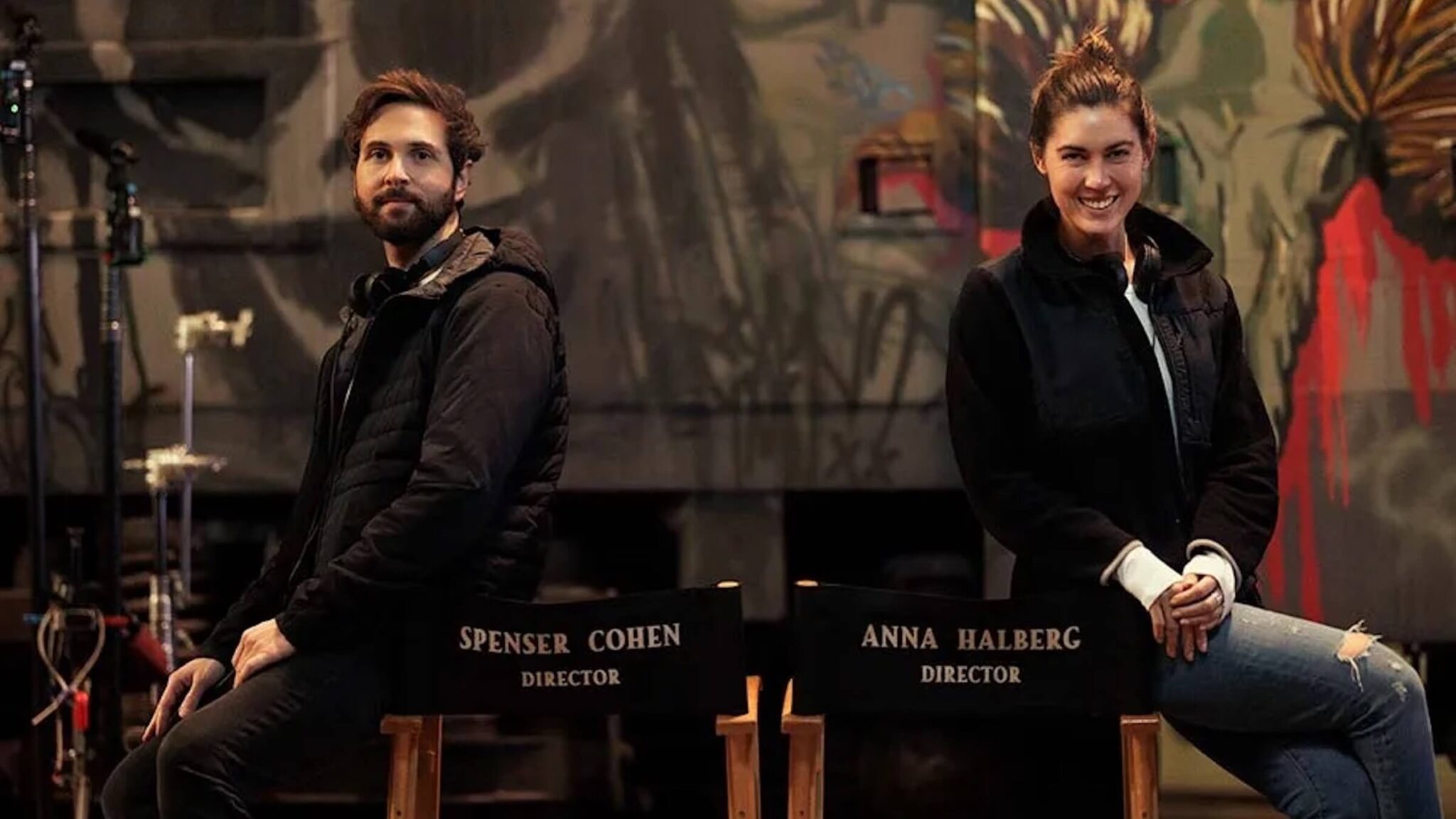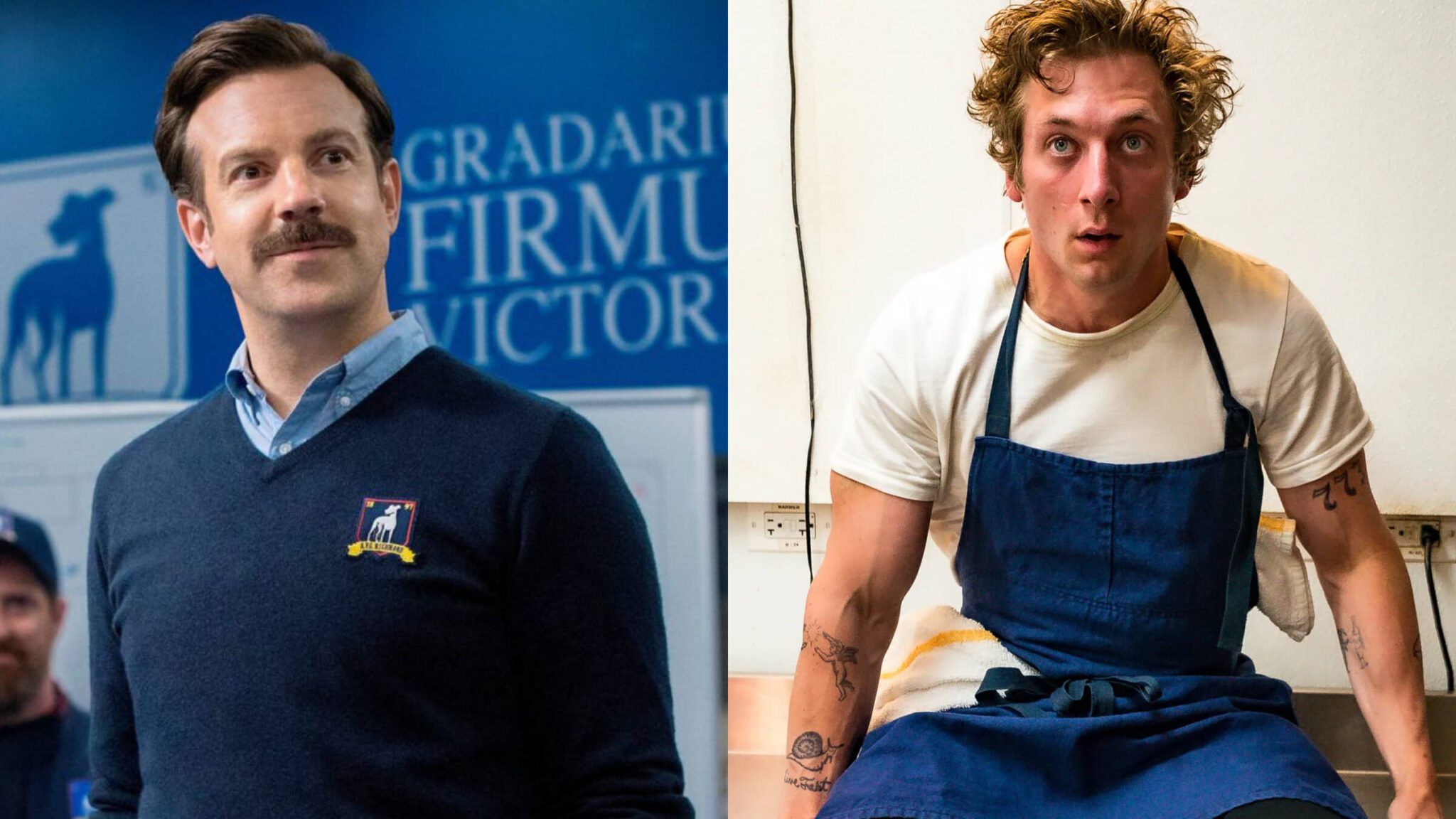10 Inspirational Ted Lasso Quotes for Screenwriters

What screenwriting lessons can be learned from the inspiring quotes of one of the most inspiring characters ever brought to the screen — Ted Lasso?
Screenwriters don't always have to go to famous and award-winning screenwriters and filmmakers to learn valuable lessons that can be applied to their screenwriting journeys. Wisdom is everywhere.
Here we turn to a fictional character like no other. Ted Lasso. He's the titular character of the Emmy-winning series on Apple TV.
The must-watch series tells the story of American college football coach Ted Lasso as he heads to London to manage AFC Richmond, a struggling English Premier League soccer team.
It's a fish-out-of-water series that manages to prove itself to be one of the most heartwarming and inspiring comedies of our time.
Ted Lasso is pure optimism at its best. While he is forced to deal with struggles in his life, he conveys inspiration and kindness to others through endless one-liners applicable to any walk of life.
With that in mind, we take some of Ted's most clever and inspiring phrases and apply them to what screenwriters can learn through their screenwriting journey.
"Taking on a challenge is a lot like riding a horse, isn't it? If you're comfortable while you're doing it, you're probably doing it wrong."
Successful screenwriters love to challenge themselves. They want more. They get bored with complacency. When they've become successful in one genre, they want to tackle another. That's one of the reasons why they are successful.
If you're not challenging yourself as a screenwriter, you're not going to grow as a screenwriter. Once you get a hold of the general screenwriting structure, characterization, and format with those first couple of screenplays, it's time to challenge yourself by taking something on that intimidates or scares you.
- The big idea that seems impossible to pull off.
- The genre you've never written in.
- The story that requires a lot of research.
If you feel comfortable in your writing, it means you're not challenging yourself. And if you're not challenging yourself, you're offering up only part of your potential as a screenwriter.
"As the man once said, the harder you work, the luckier you get."
Luck is an integral part of success in Hollywood, or often anywhere in life. But we don't have to be a slave to it. We don't have to sit by the phone, waiting for it to call.
We make our luck by taking advantage of opportunities and circumstances, being optimistic of our situations, trusting in and following our intuitions, and being resilient against anything and everything thrown at us in life, especially in our pursuits of the Hollywood dream.
The harder you work, but more luck you will make for yourself.
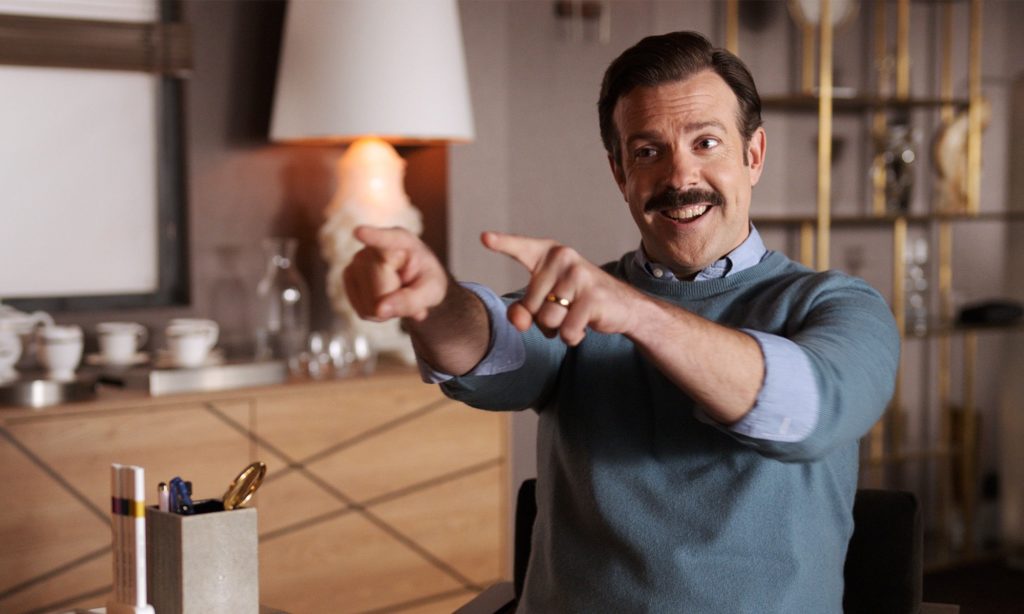
'Ted Lasso'
"You know what the happiest animal on Earth is? It's a goldfish. You know why? It's got a 10-second memory."
You can't avoid rejection as a screenwriter. It's impossible. And as I always say, "You have to fail before you can prevail in screenwriting."
- You're going to not make the quarterfinals, semifinals, and finals of contests and fellowships.
- You're going to be rejected in your cold-queries.
- You're going to face notes that you hate but must apply within your paid screenwriting gigs.
If you don't embrace the goldfish life of having a short memory, you're not going to make those screenwriting dreams come true.
Pouting and obsessing about your struggles isn't going to do you any favors in your career. It's just going to turn you into one of those cynical undiscovered screenwriters that hate and resent the industry. And those types of screenwriters have one thing in common — they never make it.
Have a short memory.
And this even applies when you experience some success in your screenwriting. If you option a script, sell a script, or get a paid writing assignment, by all means, celebrate. But understand that once it's over, you're going to be starting the process over again. You can't live off of one successful effort for too long.
Momentum fades. Hot scripts and hot screenwriters fizzle. Have a short memory and get back to work.
"I think that you might be so sure that you're one in a million, that sometimes you forget that out there you're just one in 11."
Ted was talking to a self-centered character who thought he was the team star that deserved all of the credit and attention.
Film is a collaborative medium — it only starts with the screenplay.
Many screenwriters read stories about screenwriter Joe Eszterhas and his tales of how ego made him millions. Those screenwriters are misled, believing that Hollywood wants ego-driven personalities. It may seem counter-intuitive to think that Hollywood doesn't want egomaniacs (since Hollywood does have many), but it will be your worst mistake going into a meeting with the attitude that you and your script are the next big thing.
You have to remember that you're not the second coming of Quentin Tarantino, Aaron Sorkin, Diablo Cody, Nancy Meyers, Shane Black, or any other iconic screenwriter. Presenting an egotistical attitude does not make you a great screenwriter. Only great scripts do that.
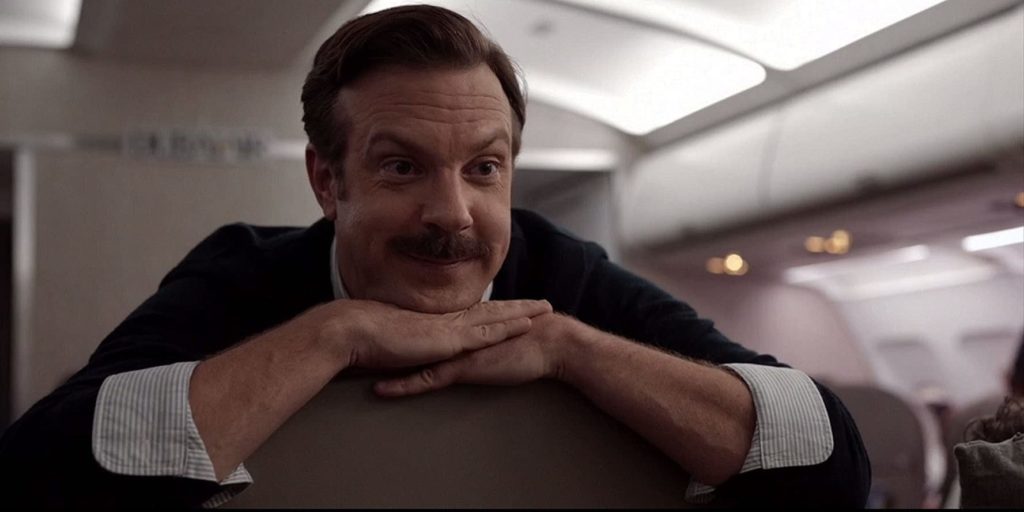
'Ted Lasso'
Even if you have the work to back it up, ego means nothing more than:
- Difficult to work with
- Won't accept notes
- Probably best to go with the friendly and appreciative screenwriter we met with yesterday.
Confidence is desirable. They want to work with people who know their craft (see below) and have confidence in their work. But ego is poison.
And remember, it only starts with the screenplay. There are hundreds of other people that have a hand in making the script come to life as it should.
"If you care about someone, and you got a little love in your heart, there ain't nothing you can't get through together."
In this case, that someone is your screenplay. If you genuinely love the script and believe in it — and it's very well-written — you'll get through any hardship together. It takes time to get that fantastic script of yours the notice that it deserves. Sometimes years. That's just the reality of the situation. You can't escape that. Just keep believing in it and yourself.
When the time is right, and the stars have aligned, your script will get noticed if you've done the necessary work to write a compelling and engaging script that people will want to be involved with.
"There's two buttons I never like to hit — that's panic and snooze."
You'll face many challenges as a screenwriter throughout your screenwriting career. When you break through and actually become a professional screenwriter, you'll face tight deadlines, studio notes you disagree with but are required to apply, and many story and character issues.
Don't panic. Just take a few deep breaths and get to work. It will help to stop and remember that this is a good problem to have. Why? Because you're getting paid to do what you hopefully love to do — write scripts.
And never hit snooze and put those things off to the last minute. Beat your deadline by a few days to give yourself time to polish the draft.
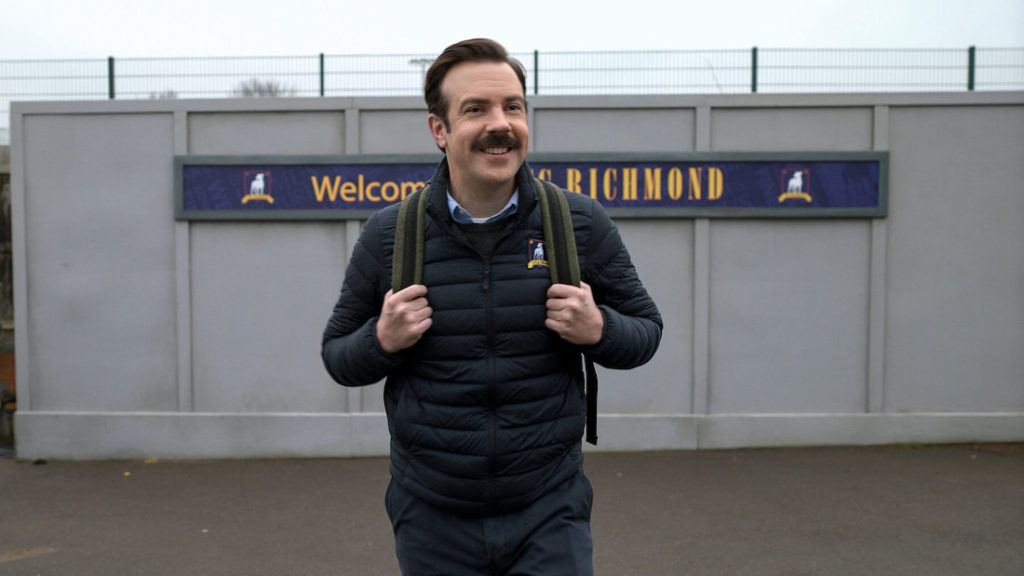
'Ted Lasso'
"I've never been embarrassed about having streaks in my drawers. You know, it's all part of growing up."
Your first scripts will be your worst scripts. You're going to write bad scenes, dialogue, and screenplays. And even when you're a seasoned vet, you'll write some stinkers and make rookie mistakes.
That's all part of the growing-up process of screenwriting. Embrace your failures and learn from them. They offer crucial information that will help you grow as a screenwriter.
And even when you get those blue-collar paid gigs that aren't the high brow, studio-level features you've dreamed of being a part of, know and understand that you're paying your dues. All professional screenwriters go through that phase. And take pride in knowing that you're doing what hundreds of thousands wish they were doing — getting paid to write.
"Our goal is to go out like Willie Nelson — on a high!"
When you're writing the end of your script, always remember that you need to go out like you (hopefully) came in — with a bang.
A movie's ending is the most vital element to the cinematic experience of the audience. Forget about powerful hooks at the beginning or impressive twists and turns during the second act. The ending is king. It's what audiences will be thinking about when they walk out of that theater. It's what script readers will be thinking about when they close that script.
"I’m sorry Nate I have real tricky time hearing people who don’t believe in themselves. Do you think this idea would work?"
Ted was speaking with a staff member who struggles with confidence. He had an idea for a play but couldn't muster the confidence to share it effectively.
As a screenwriter, you need to have confidence. Pitching is one of the most challenging things for screenwriters to do. Especially given the fact that many writers are introverts (like Nick). But what they don't understand is that it doesn't have to be as difficult as they make it.
All that you need to do is know your idea and have a passion for it. The rest will take care of itself in the pitch.
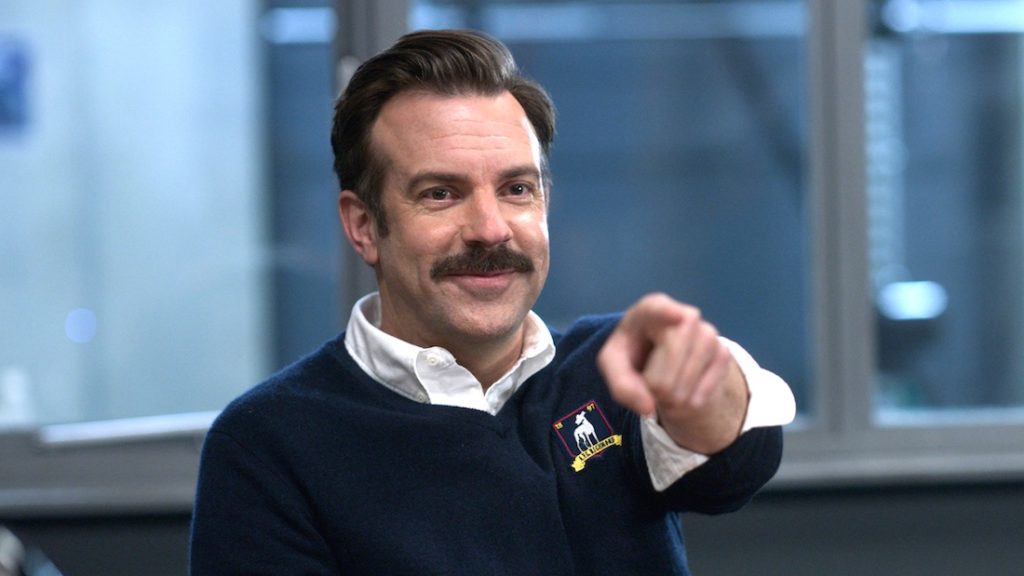
'Ted Lasso'
"Football is life."
This is a central theme for the Ted Lasso series. What can be learned and applied in football can be applied to how players live their lives as well.
So let's reset this quote for screenwriters.
"Screenwriting is life."
How you tackle your screenwriting craft and career is how you're going to tackle your life.
- Showcase resilience.
- Shine under pressure.
- Embrace rejection and failure — and learn from it.
- Have confidence — not ego.
- Treat others right.
- Handle adversity with grace.
Do this in your life and your screenwriting.
Screenwriting is life.
Ken Miyamoto has worked in the film industry for nearly two decades, most notably as a studio liaison for Sony Studios and then as a script reader and story analyst for Sony Pictures.
He has many studio meetings under his belt as a produced screenwriter, meeting with the likes of Sony, Dreamworks, Universal, Disney, Warner Brothers, as well as many production and management companies. He has had a previous development deal with Lionsgate, as well as multiple writing assignments, including the produced miniseries Blackout, starring Anne Heche, Sean Patrick Flanery, Billy Zane, James Brolin, Haylie Duff, Brian Bloom, Eric La Salle, and Bruce Boxleitner, the feature thriller Hunter's Creed starring Duane "Dog the Bounty Hunter" Chapman, Wesley Truman Daniel, Mickey O'Sullivan, John Victor Allen, and James Errico, as well as produced and upcoming Lifetime suspense thrillers. Follow Ken on Twitter @KenMovies
For all the latest ScreenCraft news and updates, follow us on Twitter, Facebook, and Instagram.
Get Our Screenwriting Newsletter!
Get weekly writing inspiration delivered to your inbox - including industry news, popular articles, and more!

























